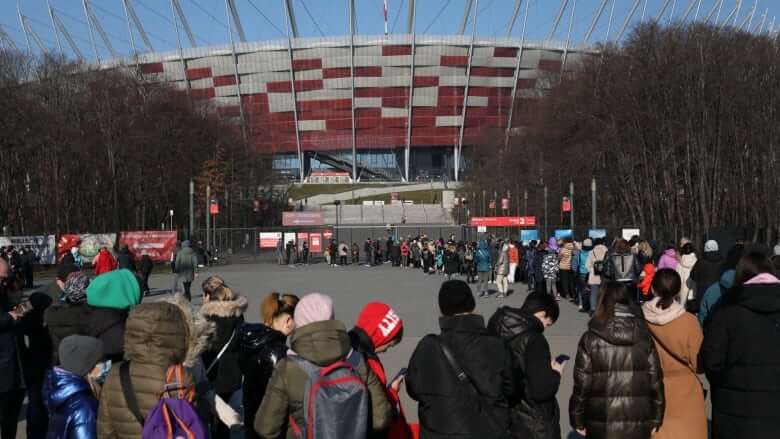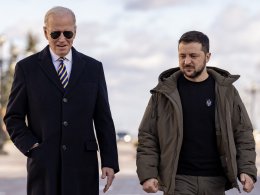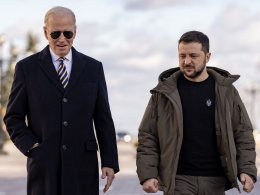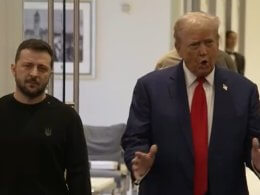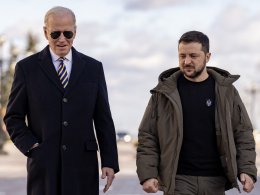In the small apartment in central Warsaw, they converge at the table at all hours to work on the puzzle over and over again. It has a calming effect on Yaroslava Shumyk's young children, Sviatoslav, 3, and two-year old Mia, who hastily escaped from their home in Kyiv as Russian shelling started pounding the outskirts of Ukraine's capital.
"I said that bad guys have come to our country and they are making our home unsafe," Shumyk told her children in explaining why the family was forced to leave.
They're among the more than 300,000 people fleeing the war in Ukraine who have made their way to Warsaw in just a few short weeks — causing an almost 20 per cent spike in the city's population of roughly 1.8 million and spurring warnings from the mayor of Poland's capital that services are stretched dangerously thin.
'It was like a bad movie for us'
Housing is becoming increasingly scarce, volunteers are worn out and schools are struggling to accommodate the influx of new students.
"We're doing our best, but 300,000 people in a matter of two and a half weeks is really a lot," Mayor Rafal Trzaskowski said in an interview with CBC News, adding that city officials have been largely improvising in their efforts to accommodate the flood of refugees.
"We need help now, and we need help which is synchronized and organized by the whole Western community."
More than two million people from Ukraine have crossed the border into Poland, with the United Nations Refugee Agency estimating that a majority of them have stayed in the country, which is geographically close and culturally similar to its neighbour.
According to Warsaw's mayor, some 30 refugee centres across the city are at or near capacity, and about 40 per cent of those now arriving in Poland's capital need assistance finding accommodation.
Hundreds of Poles have offered space in their homes, including Shumyk's hosts, Marta Maleszewska and her husband, Lukasz Maleszewski.
"Marta and Lukasz, they opened their hearts to us," Shumyk, 39, told CBC News on Sunday, two days after she and her children arrived at the home. "We feel it from the first second, and kids feel it, too."
Still, the two toddlers cling to their mother, shy and unsure of their new surroundings, while Shumyk tries to create a sense of normalcy far from home.
"He's very close to his father," Shumyk said, referring to Sviatoslav, as she recalls how emotional her young son was at leaving his father behind at the train station in Kyiv, in the early days of the war. Fighting-age Ukrainian men are not able to leave the country.
"He was crying, 'Daddy, Daddy,'" she told CBC News, in barely more than a whisper as she wiped away tears. "I knew that it will be for a very long time that I will not have an answer on when he will see him."
The chaos of that day weighs on her. "It was really a mess," Shumyk said. "It was like a bad movie for us," because everybody was running for the train and unsure of where she and her children would land.
They ended up in Warsaw, and now she's trying to pick up the pieces of her life with the help of her hosts.
"Having the history like Poland has, knowing a lot about what happened to people at World War Two, we sympathized immediately," Maleszewska said, when asked why she and her husband decided to invite a family into their home.
"We wanted to help as much as we could."





